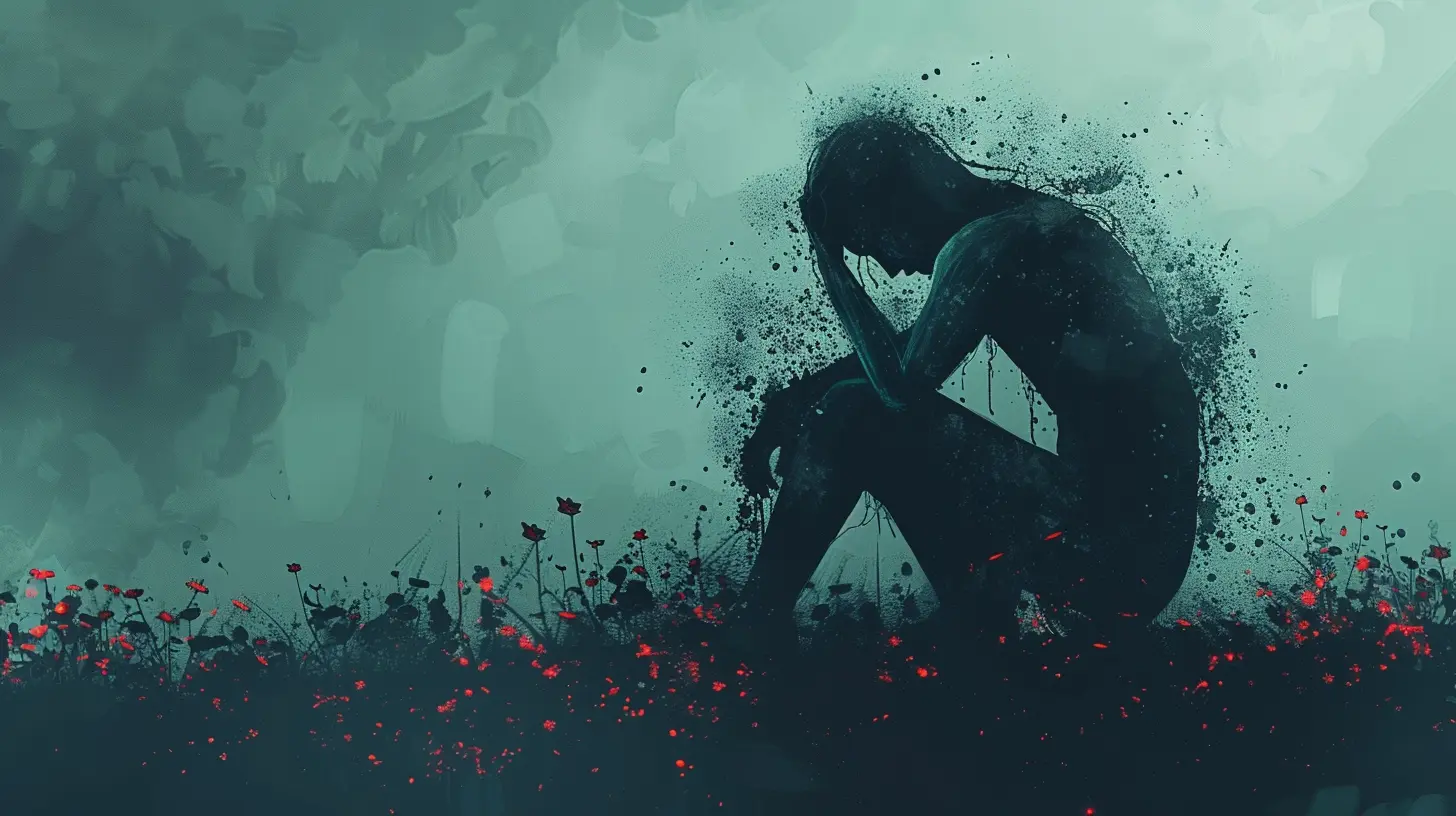How to Recognize Suicidal Thoughts in Others
3 July 2025
Suicidal thoughts can be incredibly difficult to detect, especially when someone is determined to hide their pain. But if we learn to recognize the subtle (and sometimes not-so-subtle) warning signs, we can step in and offer support before it's too late.
It’s heartbreaking to think that someone we care about might be struggling with thoughts of ending their life. But the truth is, many people suffer in silence. They feel isolated, hopeless, or overwhelmed by their emotions. By understanding what to look for, we can play a crucial role in helping them find the support they need.
Let’s dive into the key signs, behaviors, and emotional cues that might indicate someone is battling suicidal thoughts—and what we can do to help. 
Understanding Suicidal Thoughts
Suicidal thoughts don’t just appear out of nowhere. They often stem from deep emotional pain, trauma, or hopelessness. Some people experience fleeting thoughts, while others may actively plan or attempt suicide.It's important to remember that suicidal thoughts aren't a sign of weakness—they're a sign that someone is overwhelmed and needs help. Recognizing these thoughts in others means being mindful of their words, actions, and subtle changes in behavior. 
Warning Signs of Suicidal Thoughts
Suicide doesn’t always come with flashing warning signs, but there are common indicators that someone might be struggling. These signs can be grouped into three categories: verbal cues, behavioral changes, and emotional shifts.1. Verbal Cues: What They Say Matters
Sometimes, people struggling with suicidal thoughts will say things that hint at their pain. While some of these statements may seem casual, they can be cries for help. Here are a few key phrases to listen for:- “I just can’t do this anymore.”
- “Everyone would be better off without me.”
- “I feel like a burden.”
- “I don’t see a way out.”
- “I wish I could just disappear.”
These statements might be direct or subtle, but in either case, they shouldn’t be ignored. If someone you know says things like this, it’s time to check in and offer support.
2. Behavioral Changes: Actions Speak Louder Than Words
People experiencing suicidal thoughts often show noticeable changes in their behavior. Here are some red flags to watch for:- Social Withdrawal: They isolate themselves from family, friends, or activities they once enjoyed.
- Giving Away Possessions: If someone suddenly starts giving away valuable or sentimental items, it might be a sign they’re preparing for the worst.
- Sudden Mood Swings: They may go from deep sadness to unusual calmness, which can indicate they've made a final decision.
- Increased Risk-Taking: Reckless driving, substance abuse, or engaging in dangerous activities may signal a disregard for their own safety.
- Changes in Sleep Patterns: Insomnia or excessive sleeping can be linked to depression and suicidal thoughts.
- Loss of Interest: A noticeable lack of excitement or motivation for things they once cared about.
3. Emotional Shifts: The Storm Beneath the Surface
When someone is struggling mentally, their emotions can be unpredictable. Some common emotional warning signs include:- Overwhelming Sadness: A deep, persistent sadness that doesn’t seem to improve.
- Hopelessness: Feeling like things will never get better or that there’s no future.
- Irritability or Anger: They might lash out or seem constantly on edge.
- Guilt or Self-Hate: Saying things like “I don’t deserve happiness” or “I’m a failure.”
- A Sense of Calm Before the Storm: If someone has been struggling for a while and suddenly seems at peace, it could mean they’ve made a decision to end their life. 
How to Approach Someone Who May Be Suicidal
If you suspect that someone you care about has suicidal thoughts, you might feel unsure about how to approach them. Here’s what you can do:1. Start the Conversation
It’s okay to ask directly. Many people fear that bringing up suicide might "plant the idea" in someone’s mind, but that’s a myth. Asking shows that you care. Try saying:➡ “I’ve noticed you haven’t been yourself lately. Are you feeling okay?”
➡ “You’ve been saying some things that concern me. Are you feeling overwhelmed?”
➡ “I care about you, and I want to help. Are you thinking about hurting yourself?”
Be direct, but compassionate. Give them space to express how they feel without judgment.
2. Listen Without Judgment
Sometimes, the best thing you can do is simply listen. Let them express their emotions without interrupting or dismissing their feelings. Avoid saying things like:🚫 “You have so much to live for.”
🚫 “You need to snap out of it.”
🚫 “Other people have it worse.”
Instead, validate their experience:
✔ “I hear you, and I’m here for you.”
✔ “That sounds really painful. You’re not alone.”
✔ “I want to help you get through this.”
3. Encourage Professional Help
Suicidal thoughts are serious and often require professional help. Encourage them to speak with a therapist, counselor, or mental health professional. If they’re hesitant, offer to help them find resources or even accompany them to an appointment.If they are in immediate danger, don’t hesitate to call emergency services or a crisis hotline.
4. Stay Connected
Checking in regularly can make a huge difference. A simple message or phone call shows that you care and that they are not alone.Sometimes, just knowing someone is there can help them hold on a little longer. 
What NOT to Do
Even with the best intentions, certain responses can make things worse. Here’s what to avoid:- Don’t minimize their feelings. Saying “You’ll get over it” can make them feel unheard.
- Don’t argue or challenge their feelings. Instead of debating whether they “should” feel this way, focus on validating their emotions.
- Don’t promise secrecy. If someone is in danger, it’s critical to get them support—even if it means breaking their trust.
Final Thoughts
Recognizing suicidal thoughts in others isn’t about being a mind reader—it’s about being observant, compassionate, and willing to have difficult conversations. If you notice the warning signs, don’t hesitate to reach out. A simple conversation might be the lifeline they need.We all have the power to make a difference. By listening, showing empathy, and guiding them toward help, we can help someone hold on when life feels unbearable.
If you or someone you know is struggling with thoughts of suicide, please reach out to a trusted friend, family member, or professional. You are not alone.
all images in this post were generated using AI tools
Category:
Mental IllnessAuthor:

Eliana Burton
Discussion
rate this article
2 comments
Laila Tucker
Recognizing suicidal thoughts in others requires empathy and awareness. Look for changes in behavior, mood shifts, and withdrawal from social interactions. Open, non-judgmental conversations can create safe spaces, encouraging those in distress to seek help and share their feelings.
December 9, 2025 at 5:33 PM

Eliana Burton
Thank you for highlighting the importance of empathy and awareness in recognizing suicidal thoughts. Your insights on behavioral changes and the need for open conversations are crucial for creating supportive environments.
Jace Newton
Recognizing suicidal thoughts in others requires awareness of changes in behavior, communication, and emotional state. Approach concerns with empathy and support.
July 15, 2025 at 3:32 AM

Eliana Burton
Thank you for your insightful comment! Recognizing these signs is crucial, and your emphasis on empathy and support is vital in helping those in need.


